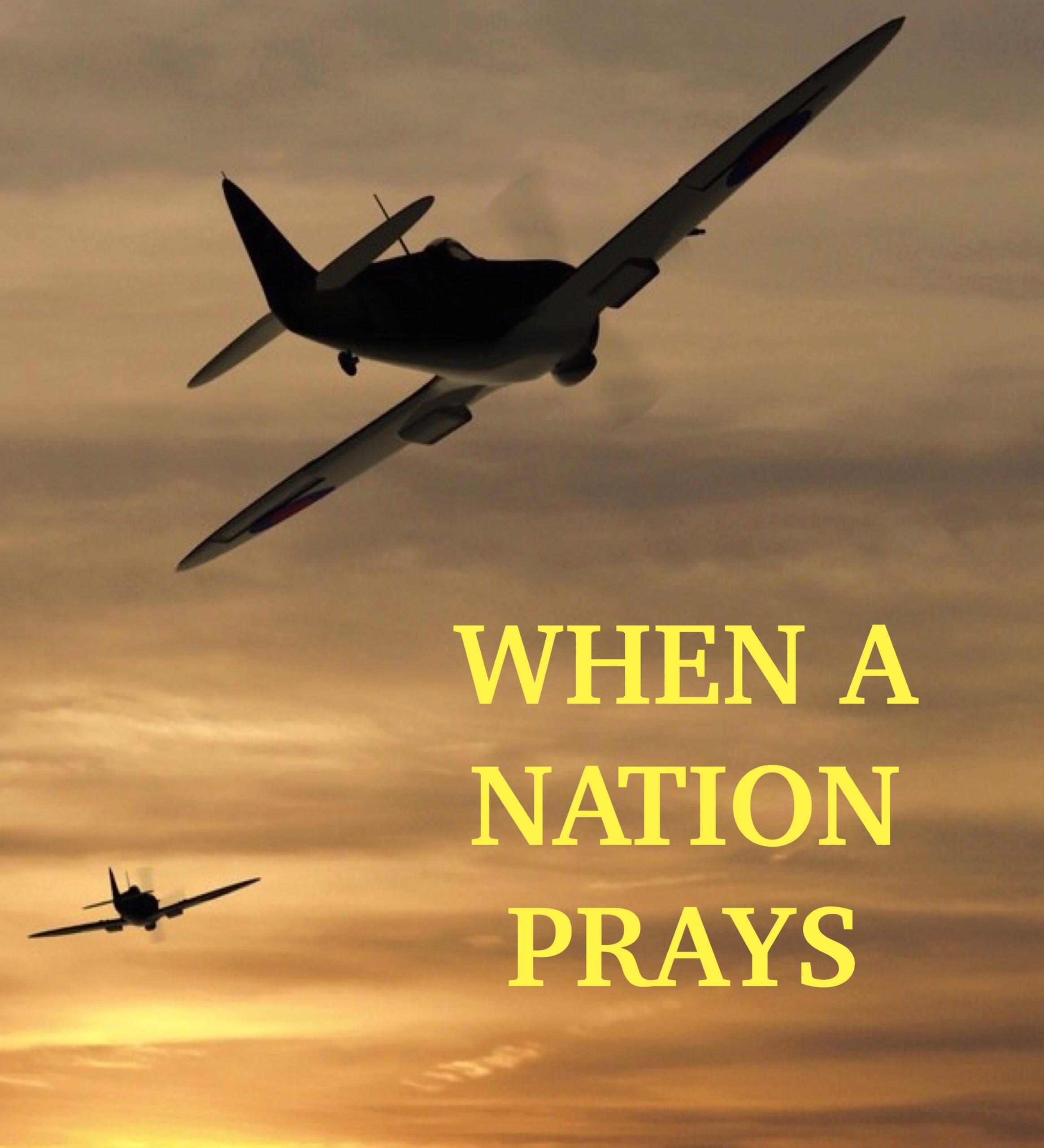TODAY, September 15, is Battle of Britain Day. It is good to commemorate it. This day in 1940 is highly significant in our nation’s history, because it marked a turning point in the great battle raging in the skies over Southern England in the late summer of that year. The issue at stake in this aerial combat was very straightforward: Would the nation be overrun by a mighty invader or not?
Another key date worth noting, for two reasons, is September 7, 1940. The first reason is that on this day RAF reconnaissance planes observed German invasion barges being transferred to various ports of embarkation on the other side of the Channel. They could not remain there for long, because the Nazis knew that the RAF would quickly endeavour to bomb them. Therefore Operation Sea Lion, the German code name for the invasion, was definitely imminent, and the destruction of the RAF was the indispensable prelude to the success of the operation. Indeed, this goal of wiping out Britain’s airborne defences once and for all had actually been pursued by the Luftwaffe since August 13. Goering had originally imagined that the task would be accomplished within four days of the action commencing – how mistaken he was.
August 15 was the most intense day of fighting in the whole of the Battle of Britain, with the Luftwaffe flying 1,786 sorties, in particular targeting the RAF’s airfields and radar stations. On this day the Germans lost 75 aircraft and the RAF 34. The Germans were inflicting much damage, but the desired knock-out blow against the RAF was not yet materialising.
The next phase of the Battle of Britain began on August 24, and British losses were mounting. Come September 6, the situation had become desperate, with 289 RAF planes shot down in the previous fortnight, along with 171 seriously damaged. The German attacks on the airfields increased in the final week of August. Fighter Command was stretched to the limit, and 25 per cent of its pilots were either killed or injured. Some new pilots were sent up with only single-figure hours of training on their Spitfires and Hurricanes, whereas at least 30 hours was necessary to match the skills of the German pilots.
Now let us return to September 7 and the second reason why this date is significant. It marked the beginning of the Luftwaffe’s ‘blitz’ upon London. The decision to target London represented a dramatic change of strategy by the Nazi high command. They hoped that the destruction of much of the capital city would crush and demoralise the nation. However, this diversion in strategy actually worked to Germany’s grave disadvantage. Arthur Ward in his book on the Battle of Britain titled A Nation Alone informs us how a key wing commander of the Luftwaffe, Major Adolf Galland, described this change of direction: ‘We knew that we were close to knocking out the RAF, but . . . switching over from attacking the British air defences to the air battle against London and other civilian targets was a big strategic mistake.’ The change of tactics yielded a vital week of respite and recovery for the RAF’s fighter airfields, enabling them to be able to counter effectively the German aerial onslaught.
Then arrives the particularly significant date of September 15. This marked the ultimate and supreme effort by Goering to apply the final killer blow to Britain’s defences, thus opening up the way for Operation Sea Lion to proceed. The German bombers had more fighter support than ever before. On this day, all over southern England, a mighty aerial confrontation took place. Twenty-six RAF fighter squadrons took to the air. 11 Group of Fighter Command had no reserves to resort to, though, thankfully, 12 Group, which oversaw the defence of the Midlands and East Anglia, could also be called upon.
Despite the enemy’s huge numbers on September 15, many of their aircraft failed to reach their targets in London, hindered as they were by the RAF’s fighters. Sixty German planes were shot down on this day, and this was enough to ensure that the Luftwaffe failed yet again to achieve its long-sought goal of bringing London to its knees and of destroying the RAF’s defensive capability. Hitler postponed the invasion on September 17, and it never took place.
In this strategic blunder from a German perspective of shifting to the bombing of London as opposed to targeting the RAF’s airfields we observe an amazing outworking of God’s sovereign control of the affairs of nations. He was intervening, answering and anticipating the solemn prayers for help rising up to Him from many people all around the country, for Britain in 1940, unlike today, had not yet become a nation that had lost all apprehension of the concept of the providence of God overruling in the affairs of men.
In this context we must introduce one more key date, which will not feature in the history books: Sunday September 8, 1940. This was a national day of prayer, called for by King George VI. It was the third such day since the outbreak of war. On this special day of intercession the churches were filled up and down the land as the people cried out to God for deliverance. Many of course would also have been praying continually before and after this date. The Lord heard the prayers of a humbled people, and graciously intervened, protecting the nation from being overrun by a formidable invader.
The Bible plainly teaches that it is God who determines a people’s welfare in all aspects of their national life, economic, political, military and social. Psalm 144, verses 10-15, tells us that when a nation honours God, it will be safe from its enemies (military and political), its young people will flourish (social), its harvests and flocks will be abundant (economic), and it will be free from crime and civil unrest, which afflictions impinge upon all the aforementioned aspects. This psalm ends with the words, ‘Happy is that people whose God is the LORD’ (verse 15).
This is the great lesson which Britain must learn today. We are a nation in deep crisis, even on the point of collapse. Our only hope is a return to the one true faith of Jesus Christ crucified for sinners. This means that many individuals on a personal level must repent of sin and trust in the Son of God for mercy and salvation. If by God’s grace this turning to Christ takes place, it will gradually have a wonderful purifying effect upon the nation as a whole, and the sovereign God will begin to honour the righteousness which He sees prevailing in the land. Then, and only then, shall we once more be able to rejoice in great confidence as a people, declaring that ‘the eye of the LORD is upon them that fear him . . . Blessed is the nation whose God is the LORD’ (Psalm 33:18,12).










